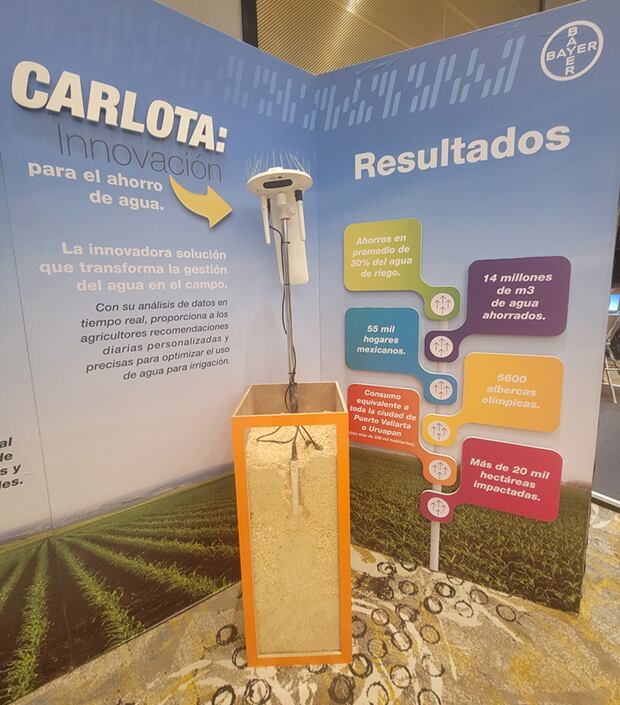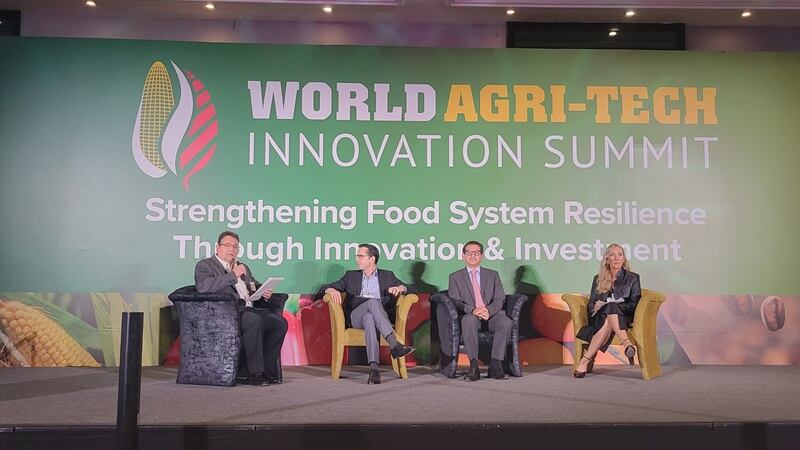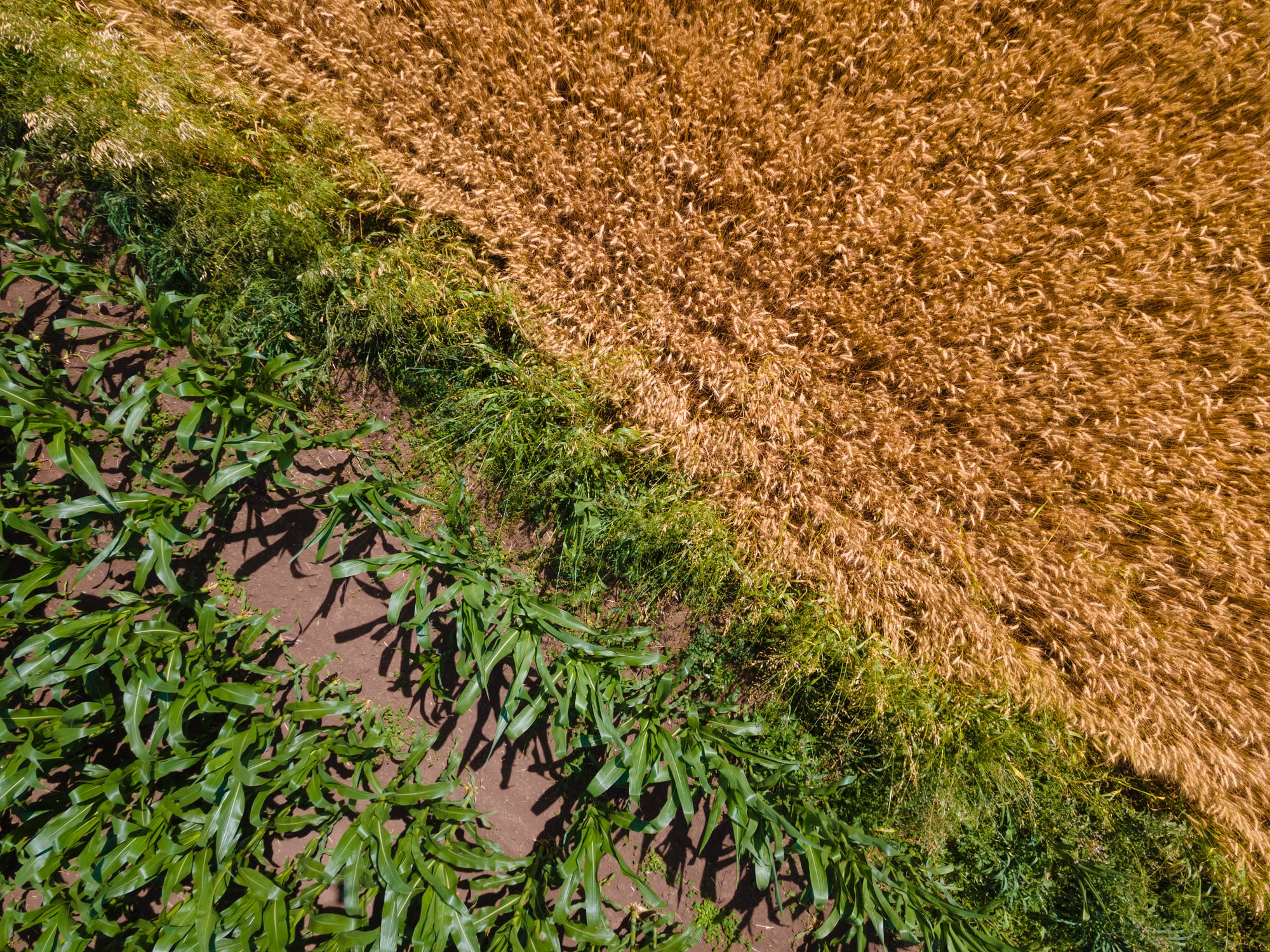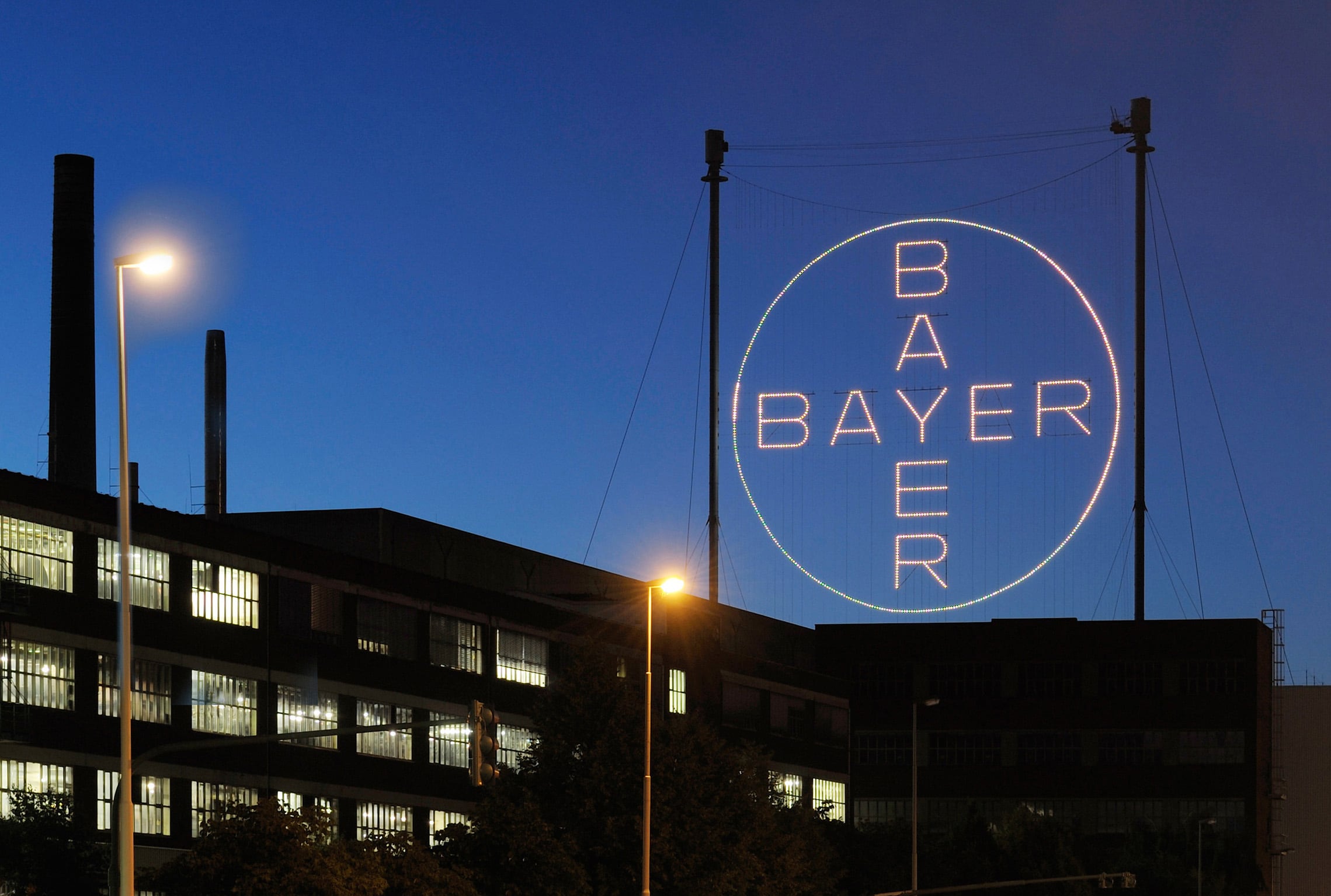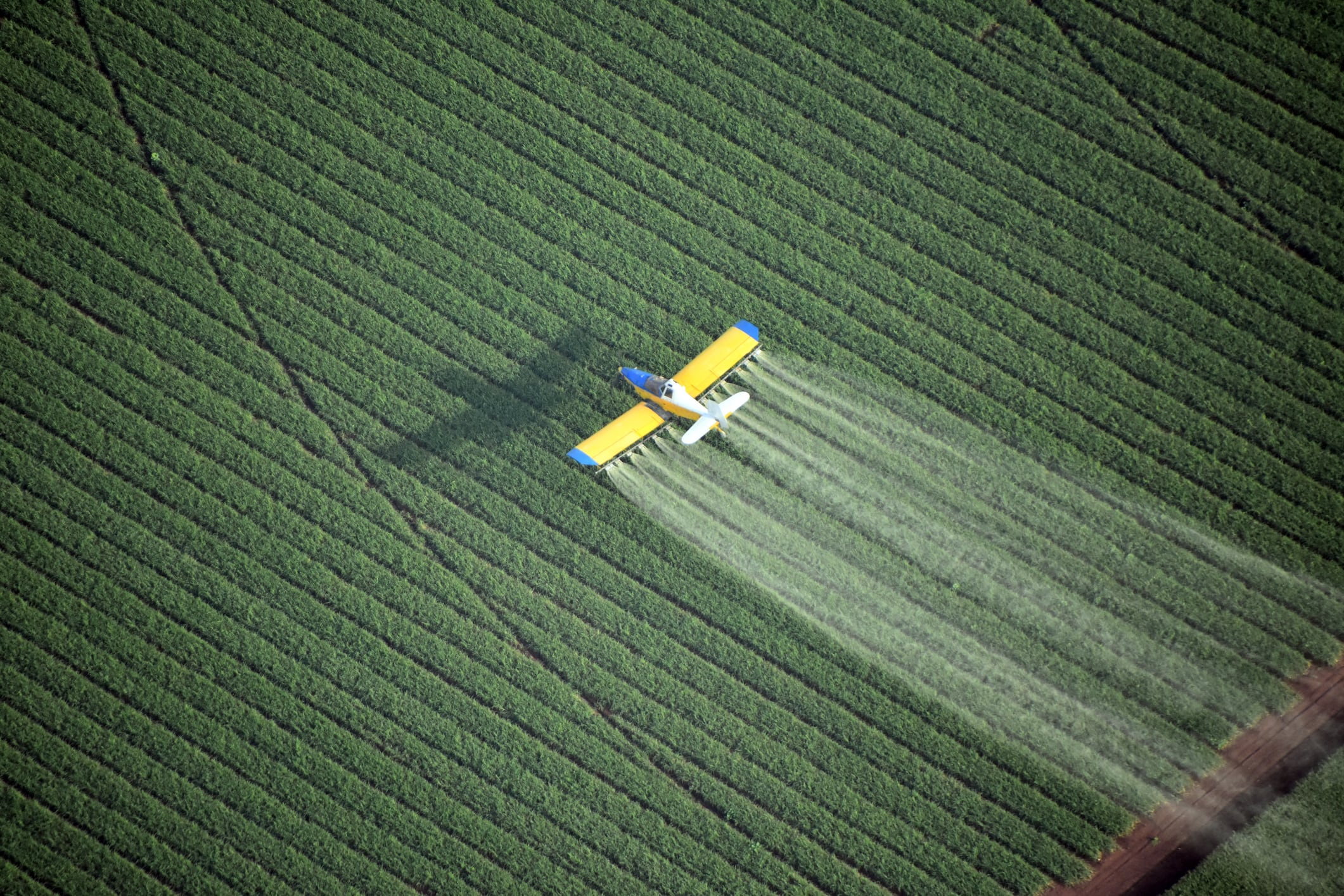Mexico’s ag industry is thriving with the help of advancements in technologies and crop sciences, as Latin America becomes a crucial testing ground for innovation, Bayer representatives shared during the World Agri-Tech Innovation Summit in Mexico City last week.
The two-day summit of agriculture executives and thought leaders opened with a panel discussion — featuring representatives from Bayer, Cargill, and financial service firm Santander — on how to scale climate-smart technologies in Mexico.
Manuel Bravo, CEO and president of Bayer Mexico, laid out three core technologies, including crop genetics and financial and digital tools, that are gaining ground in Mexico and Latin America broadly.
Leveraging crop genetics, Bayer developed new corn hybrids with stronger stalks and deeper roots that can “withstand winds of over 50 kilometers per hour” but “are at least around one meter shorter in stature than the traditional” plant, Bravo explained. Growers can use these hybrids and the new corn system to produce denser fields, increasing density between 30-40% per hectare — all while using less nutrients, he added.
Bayer developed these corn hybrids in its research center in Jalisco, and plans to bring them to Argentina, Brazil, and the US, following success in Mexico’s ag industry, Bravo noted. “Local science can have global impact,” he emphasized.
Putting the farmer at the center of Bayer’s digital strategy
Bayer is also developing digital tools, like its AI-powered water conservation service Carlota or its digital farming tool Fieldview, to help Mexican farmers better manage resources, Julio López, digital farming solutions manager at Bayer, told AgTechNavigator.
The company moved into digital farming after growers requested solutions to solve pest problem and help better manage their water, López noted. While helping farmers save on crop inputs might sound counterintuitive to its business model, Bayer set a sustainability goal of decreasing its chemical footprint by 30%, he added.
“We do not want to be corrective. We want to be preventive. We are developing forecasting models for diseases and pests to be used along with Fieldview. Fieldview can also address how we spray, so saving water [and] saving resources,” López elaborated.
Bayer’s booth at the World Agri-Tech Innovation Summit in Mexico City highlighted Carlota’s capabilities and how the sensor and monitoring technology worked (pictured below). In recent years, Mexico’s agriculture industry faced serious droughts, López explained.
2025 was an outlier in terms of rainfall in Mexico, with the country experiencing 148 millimeters of rainfall between May 31 and June 29 – 51.3% above average – according to data from Mexico’s national water agency CONAGUA.
“We have served 20,000 hectares, more than 30 different crops, every soil type, every kind of irrigation. And we have saved, along with the farmers, 14 million cubic meters of water – that is 5,600 Olympic pools,” López elaborated.
